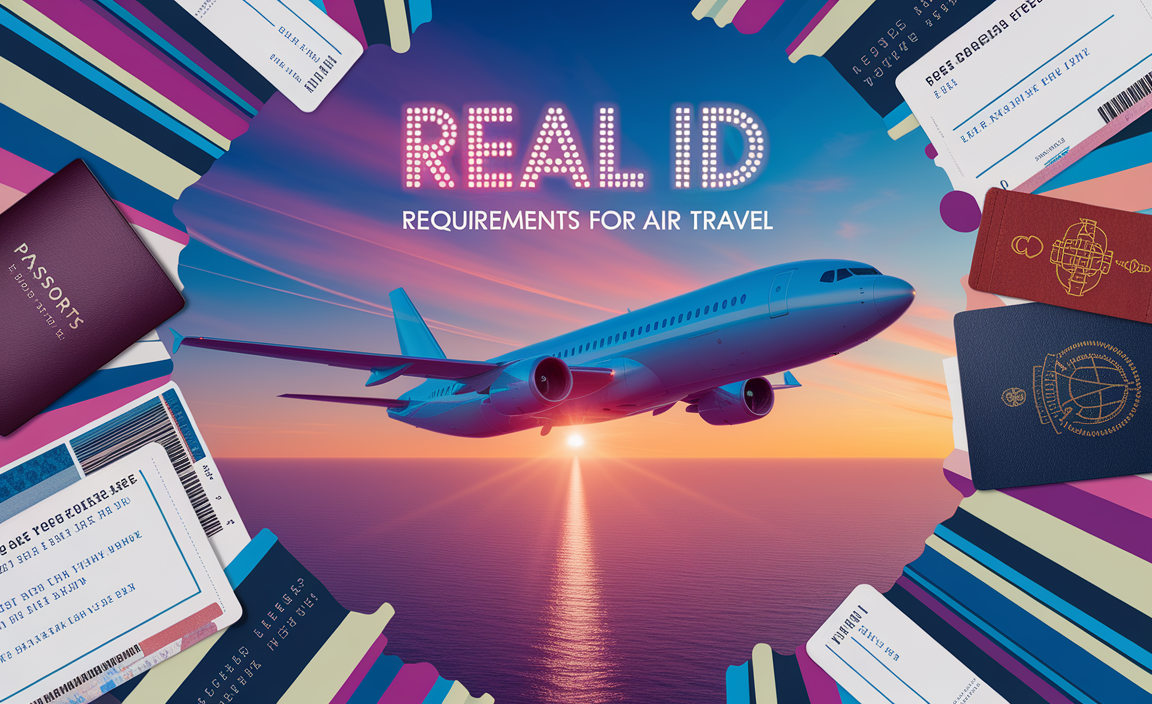Quick Summary: Navigating Bay of Islands local etiquette is simple! Be on time, greet genuinely, respect the environment, and understand tipping is less common but appreciated for exceptional service. Embrace local customs for a richer, more respectful journey.
Planning a trip to the stunning Bay of Islands? That’s fantastic! This beautiful corner of New Zealand is brimming with natural wonders and welcoming locals. To make your visit smooth and enjoyable, a little understanding of local customs goes a long way. Sometimes, even the most seasoned travelers can feel a bit uncertain about how to navigate new social settings. This guide is here to help you feel confident and prepared, ensuring you connect with the heart of the Bay of Islands respectfully and joyfully. We’ll cover everything you need to know, from greetings to respecting the land, so you can focus on soaking in the incredible scenery and experiences.
Understanding the Heart of New Zealand Culture
New Zealand, often called Aotearoa, has a rich cultural tapestry woven from Māori traditions and a more recent European heritage. The Bay of Islands, being a significant historical and cultural site for Māori, offers a unique opportunity to engage with this heritage. Generally, New Zealanders are known for being laid-back, friendly, and practical. Politeness is valued, and a sense of community is strong. Understanding this foundation will help you interpret local customs and interactions more easily. It’s not about strict rules, but rather about showing mutual respect and being considerate of others and the environment.
Essential Bay of Islands Etiquette Explained
Getting familiar with local etiquette ensures you’re a considerate visitor. This isn’t about strict laws, but about showing respect and making your experience, and that of others, more pleasant. Think of it as learning a few key phrases in a new language – it opens doors and fosters goodwill.
Greetings and Social Interactions
New Zealanders are generally warm and approachable. A simple, friendly greeting can go a long way. Don’t be surprised if locals strike up a conversation; it’s part of their open nature.
- Saying Hello: A smile and a “hello” or “kia ora” (a Māori greeting meaning ‘be well’ or ‘hello’) is always appreciated. “Kia ora” is widely used and understood, especially in tourist areas.
- Eye Contact: Maintaining comfortable eye contact during conversations is generally seen as a sign of attentiveness and sincerity.
- Personal Space: New Zealanders tend to appreciate a reasonable amount of personal space, similar to many Western cultures. Avoid standing too close during conversations unless you know the person well.
- Punctuality: Being on time for appointments, tours, or dinner reservations is considered polite. Tardiness can suggest disrespect for other people’s time.
- Conversational Style: Conversations are usually informal. Locals often use humor and enjoy light-hearted banter. Avoid overly boastful or aggressive communication.
Respect for the Environment
The Bay of Islands is a jewel of natural beauty. Protecting it is a shared responsibility. Respecting the environment is a core value for many New Zealanders, and visitors are expected to do the same. This includes everything from keeping beaches pristine to respecting wildlife.
- Leave No Trace: This is a golden rule. Pack out everything you pack in. This means taking all your rubbish with you, especially when visiting beaches, parks, or hiking trails.
- Protect Marine Life: If you’re on a boat trip or visiting coastal areas, avoid touching or disturbing marine animals like dolphins or seals. Maintain a safe and respectful distance. Many tours will have specific guidelines for this. You can find more information on responsible marine tourism from organizations like the Department of Conservation (DOC), which sets guidelines for interacting with New Zealand’s natural heritage.
- Respect Private Property: Stick to marked paths and public access areas. Do not trespass on private land.
- Water Conservation: While the Bay of Islands gets a good amount of rainfall, water is still a precious resource. Be mindful of your usage, especially in accommodations.
- Aerosol Cans: Avoid using aerosol cans in confined spaces, especially around sensitive natural areas or heritage sites, as they can contribute to pollution.
Respect for Cultural Heritage
The Bay of Islands holds deep significance for Māori, the indigenous people of New Zealand. Paihia and Russell, for example, have strong historical connections. Showing respect for Māori culture is vital.
- Learning a Few Māori Words: As mentioned, “kia ora” is a great start. Learning other basic phrases like “tena koe” (hello to you – formal), “ngā mihi” (thanks), and “haere mai” (welcome) can be a wonderful way to show you’re making an effort.
- Understanding Marae Etiquette: If you have the opportunity to visit a marae (a Māori meeting ground), it’s important to understand and follow the specific protocols. These often involve a formal welcome ceremony (pōwhiri), where guests enter the marae after a series of speeches and songs. Typically, men go first to visit the wharenui (meeting house). It’s considered polite to accept refreshments offered. If you’re unsure, always ask your hosts for guidance. The New Zealand Māori Tourism website offers excellent resources on understanding and respecting Māori culture.
- Artifacts: Do not touch or remove any historical artifacts. These are important cultural taonga (treasures).
- Photography: Always ask permission before taking photos of people, especially elders or during cultural performances.
Dining and Tipping Etiquette
The culinary scene in the Bay of Islands is growing, with fresh seafood and local produce taking center stage. Understanding dining etiquette and tipping practices will ensure a smooth and enjoyable meal.
New Zealand does not have a strong tipping culture like in some other countries. Service staff are paid a legal minimum wage, and tips are generally not expected. However, they are always appreciated for exceptional service.
| Situation | Tipping Expectation | Reasoning |
|---|---|---|
| Restaurants (Mid-range to High-end) | Optional (5-10% for outstanding service) | Service staff receive a living wage. Tips are a bonus for truly exceptional experiences. |
| Cafes/Casual Eateries | Not expected | Service is usually casual and efficient. |
| Bars | Not expected | Similar to casual eateries; rounding up the bill slightly is sometimes done. |
| Tour Guides/Drivers | Optional (small amount for excellent guides) | A token of appreciation for memorable tours. |
| Accommodation Staff (Hotel/Resort) | Not expected | Service is included in the room rate. |
When to Tip: If you experience truly outstanding service – perhaps a waiter who went above and beyond, or a tour guide who made your day exceptionally special – a small tip is a lovely way to show your appreciation. It’s more about acknowledging great effort than a standard practice.
How to Tip: If you choose to tip, simply tell the server the total amount you wish to pay (including the tip) when settling the bill, or leave a few extra dollars on the table if paying cash. You can also inform the cashier how much to charge your card. There’s no specific protocol.
Driving and Road Rules
If you plan to explore the Bay of Islands by car, familiarizing yourself with driving rules is important. New Zealand drives on the left side of the road.
- Lane Discipline: Keep to the left. Overtake on the right.
- Speed Limits: Always adhere to posted speed limits. They are often lower in rural and coastal areas and can change suddenly. New Zealand Transport Agency (NZTA) provides comprehensive information on road rules.
- Seatbelts: Seatbelts are mandatory for all passengers in both the front and back seats.
- Mobile Phone Use: It is illegal to hold and use a mobile phone while driving. The phone must be hands-free.
- Gravel Roads: Many scenic routes and roads leading to less-visited spots are unsealed (gravel). Drive with caution, reduce speed, and be aware of loose stones.
- Single-Lane Bridges: These are common and clearly marked. Yield to oncoming traffic if you are the first to arrive or if the bridge is designated for a specific direction. A red triangle sign indicates you must give way.
Shopping and Markets
When browsing local shops or visiting markets, a friendly demeanor is appreciated. Haggling is not a common practice in most retail settings in New Zealand.
- Prices: Prices are generally fixed, especially in established shops.
- Markets: At farmers’ markets or craft stalls, prices are usually displayed. While some light negotiation might be possible for larger purchases, it’s not the norm. A polite inquiry is fine, but be prepared to pay the displayed price.
- Payment: Most places accept credit cards, but it’s always good to have some cash on hand for smaller purchases or smaller vendors.
- “Manaakitanga”: This Māori concept embodies hospitality, kindness, and generosity. Showing genuine interest in the products and the artisans who made them is a great way to engage.
Respecting the “Kiwi” Way
The term “Kiwi” refers to New Zealanders, named after their unique national bird. Kiwis tend to value humility, fairness, and a good sense of humor. They often downplay their achievements and appreciate it when others do the same. Self-deprecation is common and usually meant in good spirits.
Modesty: Avoid excessive bragging or drawing undue attention to yourself. A down-to-earth approach is better received.
Fairness: There’s an appreciation for a fair go. This extends to how you interact with locals and fellow travelers. Be patient, be kind.
Sense of Humor: Kiwis often have a dry sense of humor. Being able to laugh at yourself and engage in light-hearted banter will help you connect.
Practical Tips for a Smooth Trip
Beyond etiquette, a few practical tips can make your journey even more stress-free, especially if you’re managing travel with specific needs.
- Packing Essentials: Always pack layers for changeable weather, even in summer. Sunscreen, a hat, and insect repellent are must-haves.
- Comfort on the Go: If you require extra comfort or support during long travel days, consider personal care items like Always discreet pads or reliable adult incontinence underwear. Having these readily available can significantly reduce stress on flights, road trips, or extensive sightseeing, ensuring you feel secure and comfortable wherever your adventures take you.
- Child Travel Needs: For families traveling with young children, having a reliable supply of child diapers and other essentials is crucial. Planning ahead means fewer worries and more enjoyment for everyone. Consider compact, easy-to-carry diaper bags and wipes for quick changes on the go.
- Stay Connected: While many places offer Wi-Fi, it’s wise to have a local SIM card or an international roaming plan if you need consistent connectivity for navigation or communication.
- Emergency Contacts: Keep a list of important phone numbers, including local emergency services and your accommodation. New Zealand’s emergency number is 111.
Frequently Asked Questions (FAQ)
What is the most important Māori greeting to know?
The most versatile and widely used Māori greeting is “kia ora.” It means “hello” and is also a way to express thanks or good wishes. It’s a respectful and friendly way to acknowledge locals.
Is it rude to refuse food if offered on a marae?
Generally, it’s considered impolite to refuse food or drink when offered, especially during a marae visit. Accepting hospitality is a key part of Māori culture called “manaakitanga.” If you have dietary restrictions, it’s best to mention them discreetly at the beginning of your visit, or if possible, when the food is initially offered.
How much should I tip in New Zealand?
Tipping is not expected in New Zealand, as service staff are paid a living wage. However, if you receive exceptional service at a restaurant or from a tour guide, a tip of 5-10% is a thoughtful way to show appreciation, but it’s entirely optional.
Is it okay to walk off the marked trails?
No, it is generally not okay to walk off marked trails. Sticking to designated paths helps protect the fragile natural environment, prevents erosion, and ensures your safety. Many areas have sensitive flora and fauna that can be easily damaged.
What should I do if I see a seal or dolphin?
Maintain a respectful distance – at least 20 meters for seals and 50 meters for dolphins. Never feed them, and avoid swimming or getting between them and the shore. Following these guidelines ensures their safety and allows you to enjoy observing them in their natural habitat.
Are bargaining prices common in shops?
Bargaining over prices is not a common practice in most retail shops in New Zealand. Prices are typically fixed. While you might find some flexibility at small craft markets or for very large purchases, it’s best to expect to pay the stated price.
What is the best way to handle child diaper changes on the go?
Always carry a portable changing mat, a good supply of diapers and wipes, and plastic bags for disposal. Many cafes, restaurants, and public facilities have dedicated changing stations. If not, a clean car or a quiet park bench can work in a pinch. Having travel-sized diaper cream and hand sanitizer is also very helpful.
Conclusion
The Bay of Islands is a destination that truly captivates the heart, offering breathtaking landscapes and engaging cultural experiences. By embracing the local etiquette – being mindful of greetings, respecting the pristine environment, understanding cultural nuances, and navigating social customs with consideration – your visit will be all the more rewarding. Remember that locals are generally welcoming and appreciate visitors who show respect for their home and culture. Whether you’re a solo adventurer, a family with young children needing practical solutions like travel-friendly diapers, or simply seeking a peaceful escape, the Bay of Islands promises an unforgettable journey. Pack smart, tread lightly, and open yourself to the genuine warmth and beauty that this incredible region has to offer. Your thoughtful approach will not only enhance your own experience but also contribute positively to the welcoming spirit of the Bay of Islands.






